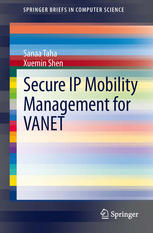

Most ebook files are in PDF format, so you can easily read them using various software such as Foxit Reader or directly on the Google Chrome browser.
Some ebook files are released by publishers in other formats such as .awz, .mobi, .epub, .fb2, etc. You may need to install specific software to read these formats on mobile/PC, such as Calibre.
Please read the tutorial at this link: https://ebookbell.com/faq
We offer FREE conversion to the popular formats you request; however, this may take some time. Therefore, right after payment, please email us, and we will try to provide the service as quickly as possible.
For some exceptional file formats or broken links (if any), please refrain from opening any disputes. Instead, email us first, and we will try to assist within a maximum of 6 hours.
EbookBell Team

0.0
0 reviewsThis brief presents the challenges and solutions for VANETs’ security and privacy problems occurring in mobility management protocols including Mobile IPv6 (MIPv6), Proxy MIPv6 (PMIPv6), and Network Mobility (NEMO). The authors give an overview of the concept of the vehicular IP-address configurations as the prerequisite step to achieve mobility management for VANETs, and review the current security and privacy schemes applied in the three mobility management protocols. Throughout the brief, the authors propose new schemes and protocols to increase the security of IP addresses within VANETs including an anonymous and location privacy-preserving scheme for the MIPv6 protocol, a mutual authentication scheme that thwarts authentication attacks, and a fake point-cluster based scheme to prevent attackers from localizing users inside NEMO-based VANET hotspots. The brief concludes with future research directions. Professionals and researchers will find the analysis and new privacy schemes outlined in this brief a valuable addition to the literature on VANET management.